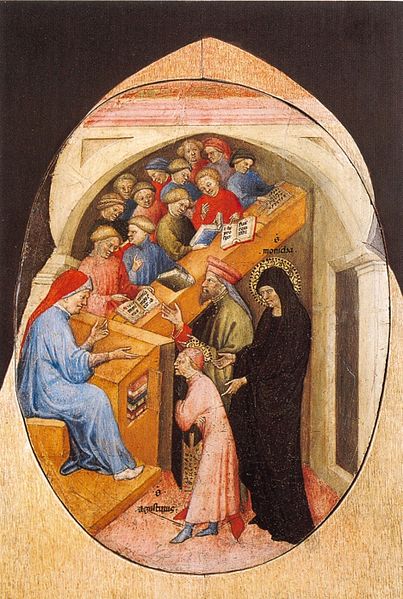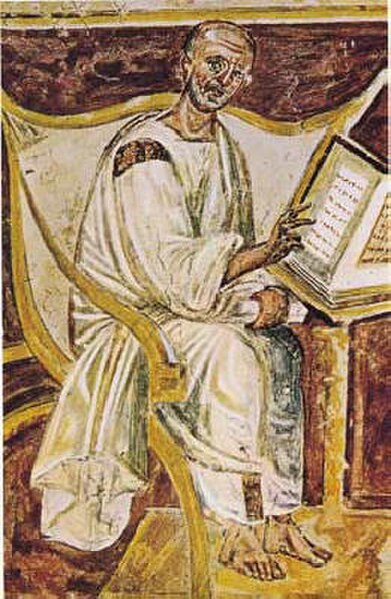On the City of God Against the Pagans, often called The City of God, is a book of Christian philosophy written in Latin by Augustine of Hippo in the early 5th century AD. The book was in response to allegations that Christianity brought about the decline of Rome and is considered one of Augustine's most important works, standing alongside The Confessions, The Enchiridion, On Christian Doctrine, and On the Trinity. As a work of one of the most influential Church Fathers, The City of God is a cornerstone of Western thought, expounding on many questions of theology, such as the suffering of the righteous, the existence of evil, the conflict between free will and divine omniscience, and the doctrine of original sin.
The City of God , opening text, manuscript c. 1470
Woodcut depicting Augustine writing The City of God
Excerpt from a copy of the manuscript "The City of God", made by Jacobus De Stephelt in 1472.
Augustine of Hippo, also known as Saint Augustine, was a theologian and philosopher of Berber origin and the bishop of Hippo Regius in Numidia, Roman North Africa. His writings influenced the development of Western philosophy and Western Christianity, and he is viewed as one of the most important Church Fathers of the Latin Church in the Patristic Period. His many important works include The City of God, On Christian Doctrine, and Confessions.
Saint Augustin by Philippe de Champaigne, c. 1645
Saint Augustine Taken to School by Saint Monica, by Niccolò di Pietro, 1413–15
The earliest known portrait of Augustine in a 6th-century fresco, Lateran, Rome
Saint Augustine and his mother, Saint Monica (1846) by Ary Scheffer







